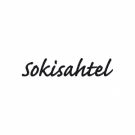

Introduction
Sokisahtel is an Estonian SME specialising in the production of socks and hosiery. Founded in 2010 in Tallinn, it has since then been steadily growing. Approximately five years ago, prior to the Covid-19 pandemic, the company started noticing a trend in its online sales: an increasing number of orders were being placed from Japan.

Why Japan
The surge of interest from the Land of the Rising Sun prompted Sokisahtel to strategically expand into the market. Known not only as one of the world's largest consumer markets but also as a global fashion hub, Japan presented an irresistible opportunity. The timing was perfect, too—owing to the Economic Partnership Agreement (EPA), which came into force in 2019, tariffs on socks were completely abolished.
Data from The Observatory of Economic Complexity shows that in 2022, Japan imported around €800 million in knit socks and hosiery, making it the third largest importer in the world. Given European companies' expertise in the textile and fashion industry, there is significant potential for growth, as demonstrated by the success of Sokisahtel.
The EU-Japan Centre support
In 2023, Sokisahtel was selected as a participant for Get Ready for Japan (GRFJ). The programme, managed by the EU-Japan Centre, is designed to equip European managers with the skills and knowledge needed to thrive in the Japanese market. This includes lectures aimed at better understanding Japanese business practices to provide insights about decision-making processes within companies.
Ms. Piret Ilver, CEO of the company, stated that GRFJ was “an eye-opening experience, that offered us a realistic view of the challenges and opportunities of exporting to Japan”. Additionally … “the programme helped us set clear expectations without any false illusions or dreams … which is crucial for effectively navigating international markets”.
Moreover, over the years the Estonian company also participated to webinars organised by the Centre on Japanese business practices, which proved to be helpful in navigating the promising but often challenging market.
Advice to companies that want to break into the Japanese market
An advice given by the Tallin-based company is to visit the country and observe the market first-hand. It’s important not to have illusions, and to “see things as they are, not as you wish them to be”.
Article based on an interview with Ms. Piret Ilver, CEO of Sokisahtel.
Published in May 2024.
The EU-Japan Centre currently produces 5 newsletters :










Joint venture established in 1987 by the European Commission (DG GROW) and the Japanese Government (METI) for promoting all forms of industrial, trade and investment cooperation between the EU and Japan.
The EU-Japan Centre’s activities are subject to the allocation of a Grant Agreement by the European Commission for 2024-2026

